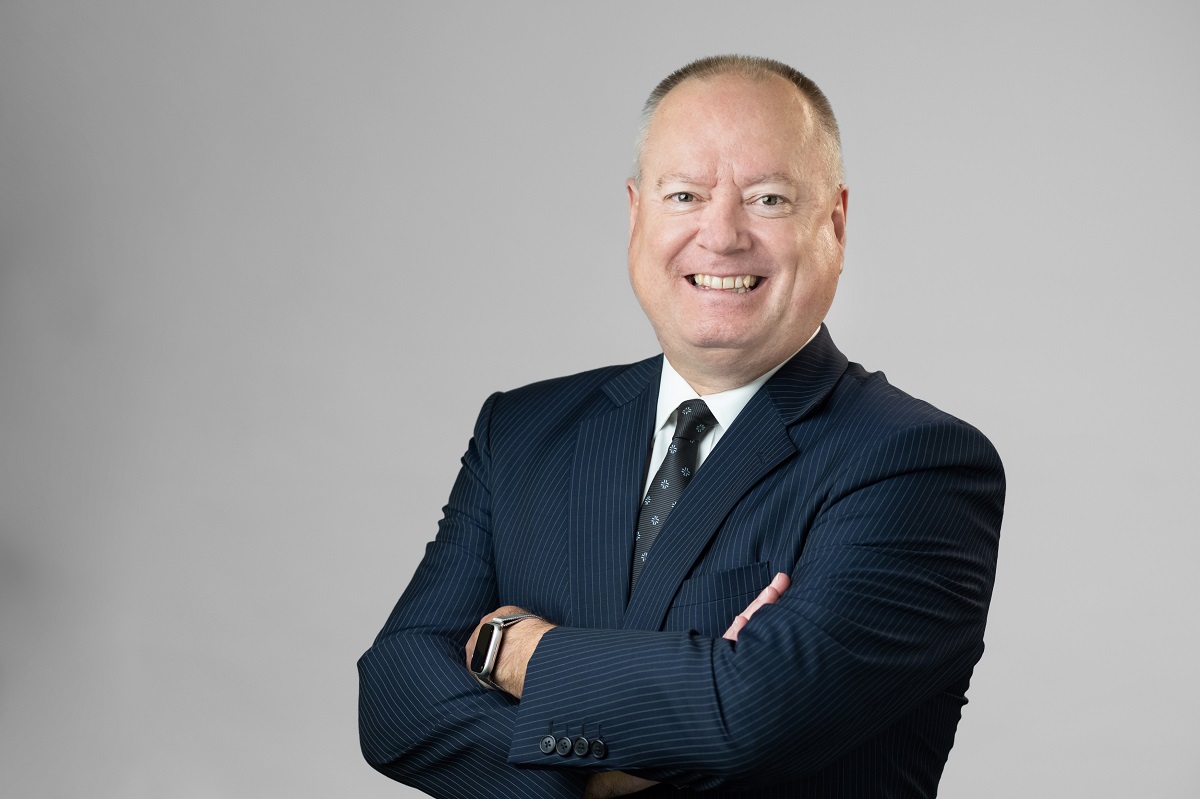
Mark Brommeyer plays a key role in the new Graduate Certificate in Digital Health Management, which empowers managers to bring healthcare into the 21st century. He explains his three decades spent working in healthcare systems around the world, with one continent still on his travel wish list.
What is your role at Flinders?
I’m a Senior Lecturer in Health Care Management at Flinders University, and have developed a Health Informatics course which I teach in China, Singapore and Australia for the Master of Health Administration award, as well as lecturing in Digital Health, Strategic Management and Clinical Governance.
How is your work tied to the new Graduate Certificate?
I’ve been an adult educator in healthcare for the past 30 years, working with Flinders University both as adjunct and full-time through the past 11 years. I’ve worked in various clinical, management, education and executive roles across Australia and internationally – in the digital health and education industry, to promote digital health competencies across all healthcare practitioners and providers.
There is constant change in the way healthcare is delivered, with major developments in digital health happening at a rapid pace across the healthcare landscape. The new Graduate Certificate in Digital Health Management aims to empower managers and stakeholders in the health and aged care sectors to be at the forefront of change and gain a deeper understanding in designing, developing and delivering their digital health environments, across the continuum of the healthcare journey, using the latest digital technologies. The management of digital and virtual health is contextually applied through exploring the role of patients, practitioners and providers, with many expert guest lecturers providing real-time, interactive learning with peers, industry experts and colleagues.
How will this new certificate help health in the 21st century?
Digitally enhancing the health and aged care journey for the 21st century will be grounded in understanding the fourth industrial revolution. Issues including adopting or adapting to digital disruption, the role of the consumer in co-design, and the consumer experience in the digital era will be examined in this course. The expanding integration of digital health raises potential ethical dilemmas in clinical practice and will require consideration.
The key will be understanding the emerging digital technologies in healthcare and their requirements of the policy, protocols and processes to manage digital disruption, the national future of technology-enabled and consumer-empowered health.
The role of design thinking, big data and data analytics for continuous improvements is vital in today’s health and aged care sector. Artificial Intelligence is rapidly evolving in healthcare and increasingly becoming the norm of everyday healthcare delivery. Emerging technologies, such as robotics, 3D printing, virtual reality, telehealth, sensors, IoT and social media, will be considered in this new course.
Benefits in enhancing healthcare delivery and reducing the burden of disease must also consider the safety and quality of these emerging technologies for patients, practitioners, providers and the healthcare system.
Understanding and managing current developments in virtual health, innovation and co-design, and their potential impact on the delivery of local health care services are real-world skills required for today’s health care practitioner, manager and leader. Developing the required set of skills and competencies for making strategic and operational management decisions in relation to virtual health, co-design and health informatics, will provide a sound foundation to lead and manage in the digital health world.
What do you love most about your role?
I’ve taught face-to-face and in technology-mediated environments across 11 countries and thoroughly enjoy the cultural, contextual, civic, religious, regulatory and policy challenges for teaching. It also challenges my thinking about adult learning, requiring me to tailor my approach to educational delivery activities.
It’s an incredible privilege to be welcomed into someone else’s country and facilitate their learning, but also to have amazing local experiences. I’ve felt a great sense of gratitude while learner sense of community, civic responsibility and family, that are often overarching common themes and occurrences.
If you could travel to any country in the world, where would you go?
I have worked in digital health strategy, change, training and risk management across primary, secondary and tertiary care in Australia, New Zealand, Malaysia, China, Singapore, Indonesia, Oman, India, England, Ireland and Wales – but I’ve never been to the African continent. So, I’m very keen to visit and explore Africa’s amazing geographical beauty, and learn about the rich cultures and diverse people who live, work and learn there.
How do you like to spend your free time?
Having recently married my high school sweetheart (well, we actually dated when we did our general nursing training at the old Royal Adelaide and got back together four years ago), my wife and I love exploring Adelaide and its amazing wine districts, enjoying the fantastic climate we are blessed with. I’m also very lucky to have three adult daughters, whom my wife and I love spending time with when we can (two live interstate and one overseas). The rest of my free time is spent completing my PhD, which is exploring Digital Health Competencies for Health Service Managers. Oh, and I play golf, which I usually get around to only once a year.

